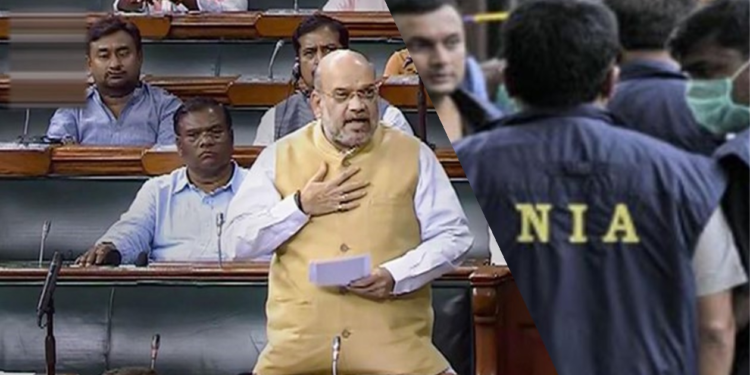The Lok Sabha on Monday passed the much critical, The National Investigation Agency (Amendment) Bill 2019, sharpening the teeth of the National Investigation Agency (NIA), India’s Central Counter Terrorism Law Enforcement Agency. This Bill comes as another push to India’s ‘zero-tolerance’ policy against terrorism. Introduced in the lower house on 8th of July, the Bill met stiff resistance from the Opposition, however, the ruling administration was successful in steering the Bill to the conclusion with 278 votes in favour compared to just six against. This amendment will widen the jurisdiction of the NIA and bring in more scheduled offences under the purview of the NIA. The Bill also proposes to set up special courts for taking up NIA related cases.
Coming into existence by the enactment of the National Investigation Agency Act, 2008 by the Parliament of India on 31 December 2008, the National Investigation Agency (NIA) acts as India’s Central Counter Terrorism Law Enforcement Agency. Created in the aftermath of the ghastly 2008 Mumbai terror attacks in which more than 160 individuals had lost their lives the NIA has been operating at its optimum with a conviction rate of 95% as it managed to convict 167 accused in 185 cases registered by it since its inception in 2009.
The first major development that the Bill proposes is the inclusion of several offences under the investigative and prosecution umbrella of the NIA. According to the amendment, now offences committed under Atomic Energy Act, 1962, and the Unlawful Activities Prevention Act, 1967 can be prosecuted by the agency. The Bill will also empower the NIA to tackle cases related to human trafficking, counterfeit currency or bank notes, manufacture or sale of prohibited arms, cyber terrorism and offences committed under Explosive Substances Act, 1908.
The Act also calls for giving the same powers to the NIA as other police officers in relation to the investigation of such offences across India. The Act also empowers the NIA to investigate similar offences committed outside Indian sovereign territory, which will be subjected to domestic treaties and domestic laws of foreign countries where the offence was committed. Central Government will have the power to instruct the NIA to investigate such cases and a Special Court in New Delhi will have jurisdiction over these cases.
To streamline the prosecution process, the Act also allows the central government to constitute Special Courts for the trial of cases. The amendment also empowers the central government to designate Sessions Courts as Special Courts for offences committed under the schedule of the Act. Further, similar to central government, state governments may also designate Sessions Courts as Special Courts for the trial of scheduled offences. Before designating a Sessions Court as a Special Court the central government will be required to consult with the Chief Justice of the High Court under which the Sessions Court is functioning.
While India looks forward towards strengthening its national security profile in face of growing foreign hostility and increasing penetration of terror originations like ISIS, this amendment will surely add a link to the long chain of efforts by the Indian government to combat terrorism.




























